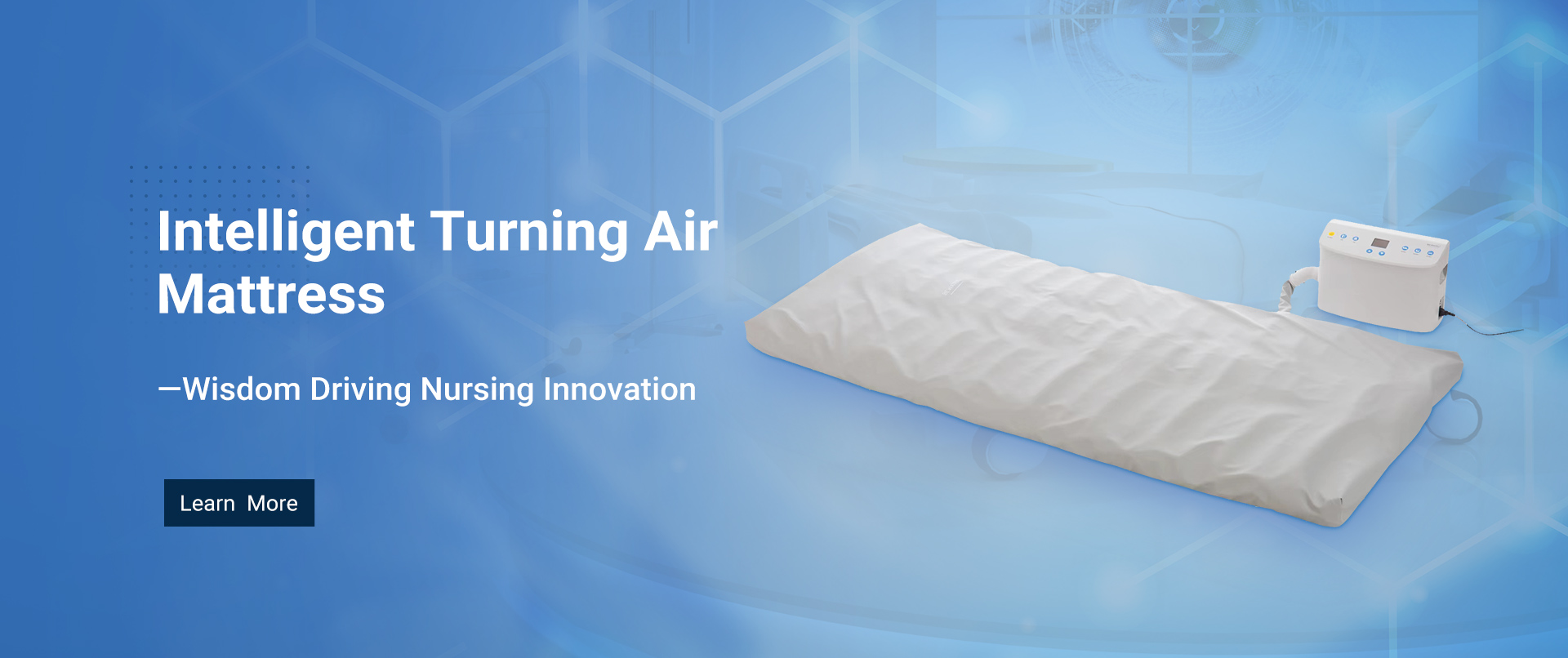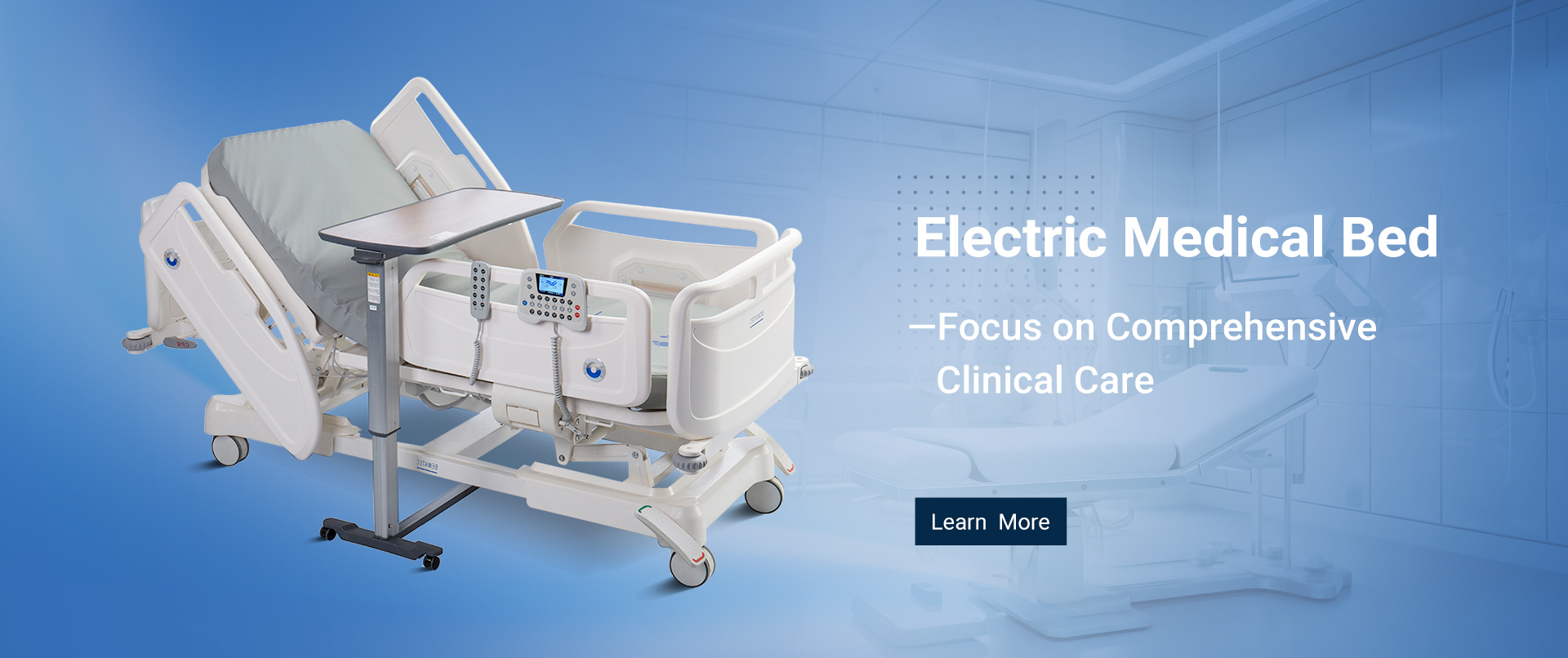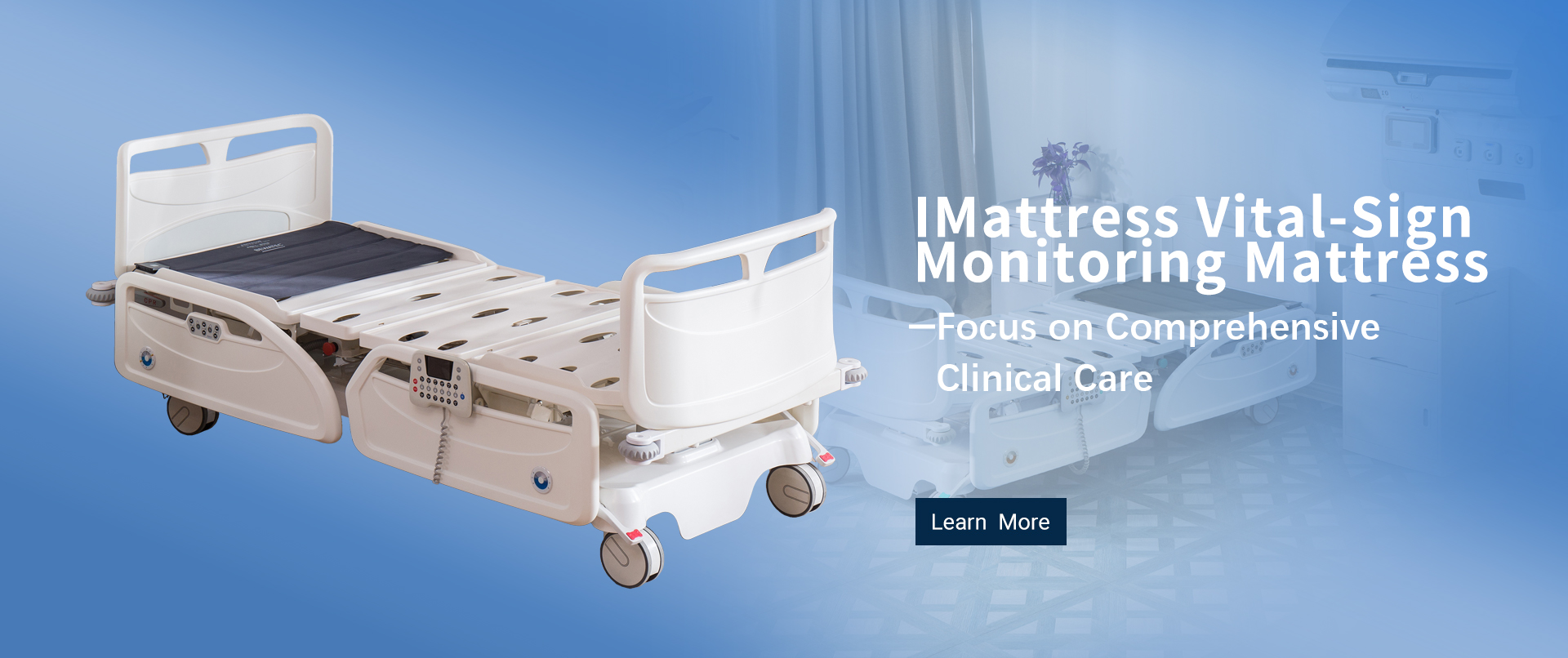
Revolutionizing Patient Care: The Impact of Smart Medical Beds on Hospital Standards
Table of Contents
- The Rise of Smart Medical Beds: Transforming Patient Comfort and Care Standards
- Key Features of Smart Medical Beds That Enhance Patient Monitoring Efficiency
- Impact of Smart Medical Beds on Hospital Readmissions and Recovery Rates
- Cost-Benefit Analysis: Smart Medical Beds and Their Effect on Healthcare Budgets
- Patient Satisfaction Metrics: The Role of Technology in Modern Hospital Settings
- Future Trends: How Smart Beds Will Shape the Landscape of Healthcare Innovation
- FAQS
- Conclusion
- Related Posts
These days, healthcare’s changing so fast, and one of the coolest shifts is the rise of smart medical beds. They’re not just beds; they’re really about making patient care better—more comfortable, safer, and personalized. It’s all part of what Bewatec (Zhejiang) Medical Device Co., Ltd. is passionate about—driving digital innovation across the global medical scene. By adding some fancy tech to these beds, healthcare providers can create a more smooth, responsive environment. That means better outcomes for patients and easier operations for hospitals too. Bewatec is really leading the way when it comes to smart medical solutions, and honestly, these smart beds are about to change the game—making sure every patient gets care that's tailored to their needs, with a truly digital touch.

The Rise of Smart Medical Beds: Transforming Patient Comfort and Care Standards
You know, with all the buzz around smart medical beds these days, it really looks like they're about to change how hospitals operate. These high-tech beds are a game-changer, making things way more comfortable for patients and boosting overall care. Honestly, a report from Allied Market Research predicts that by 2026, the global market for these smart beds could hit around $4.81 billion — that’s pretty impressive, right? And the growth rate? A solid 20.4% annually from 2019 to 2026. It’s clear that health care is shifting gears, with tech taking on a bigger role in helping patients recover faster and hospitals run smoother.
What’s cool is that these beds come loaded with features like automatic adjustments to keep patients comfortable, built-in monitoring tech, and links to hospital info systems. A study published in the Journal of Healthcare Management even shows that they can cut down patient falls by more than 30%, and pressure ulcers go down by nearly 25%. That means folks not only feel better, but it also helps hospitals save money in the long run because they’re dealing less with complications from staying immobile or uncomfortable. As more hospitals jump on this bandwagon, things are definitely looking up — patient care is becoming more comprehensive and, honestly, more human too.
Key Features of Smart Medical Beds That Enhance Patient Monitoring Efficiency
Smart medical beds are really shaking up patient care these days, thanks to some pretty cool features that make monitoring way more efficient. I read in the Healthcare Technology Report that hospitals using these smart beds have seen about a 30% drop in patient falls, and response times from nurses have improved by around 25%. These beds come with built-in sensors that keep tabs on vital signs like heart rate and blood pressure all the time, so medical staff can catch potential problems early and jump into action faster.
On top of that, these beds help streamline the work for healthcare providers. According to a study in the Journal of Health Informatics, staff spend up to nearly a third of their time on admin stuff related to patient monitoring. The smart beds sort this out by automatically recording and sending data straight to electronic health records (EHRs). That means nurses and doctors get to spend more time actually caring for patients instead of drowning in paperwork. Honestly, it’s a big step towards making hospital care not just more efficient, but better overall for everyone involved.
Impact of Smart Medical Beds on Hospital Readmissions and Recovery Rates
Smart medical beds are really changing the game in hospitals. They’re not just beds anymore—they come with cool tech that watches over patients’ vital signs, adjusts themselves automatically, and even crunches data to help doctors personalize care. It’s pretty impressive! With real-time monitoring, staff can catch potential problems early on, which means they can step in before things get worse — a big win for patient recovery.
Plus, these beds make patients feel way more comfortable and supported, which honestly makes a huge difference. When patients aren’t in as much pain and feel cared for, they tend to heal faster and don’t need to come back to the hospital as often. In fact, hospitals using this tech have seen fewer readmissions for stuff like pneumonia or post-surgery issues. All in all, smart beds are not just about fancy gadgets—they’re helping people get better quicker and safer. Looks like the future of patient care is heading in a pretty exciting direction!
Cost-Benefit Analysis: Smart Medical Beds and Their Effect on Healthcare Budgets
You know, smart medical beds are really making a difference when it comes to healthcare budgets. It's pretty exciting because this trend is all about improving patient care while keeping costs in check. The market for these high-tech beds is crushing it—projected to hit around $2.28 billion by 2024 and then jump to about $4.44 billion by 2033, with a steady growth rate of roughly 5.1% per year. Hospitals are starting to see the financial perks, no doubt. These beds aren't just fancy—they actually boost patient comfort and safety, plus they help cut down on manual work, which means less staffing needed and fewer readmissions in the long run. It’s like hitting two birds with one stone.
On top of that, smart beds can make hospital operations way more efficient. They’re equipped with tech that keeps track of vital signs and sends alerts to caregivers instantly. So, not only do patients tend to recover better, but resources are used more wisely too. I won’t lie, the upfront cost can be pretty steep, but honestly, the savings over time—thanks to better patient management and smoother operations—more than make up for it. All in all, these camas are turning out to be a smart investment for hospitals looking to step into the future of healthcare.
Cost-Benefit Analysis of Smart Medical Beds in Hospitals
Patient Satisfaction Metrics: The Role of Technology in Modern Hospital Settings
You know, in today’s healthcare world, smart medical beds are really changing the game when it comes to patient satisfaction. A report from the American Hospital Association actually shows that hospitals using advanced tech in patient care can see about a 15% boost in patient satisfaction scores. These smart beds aren't just regular beds—they come with cool features like automatic position adjustments and built-in monitoring systems, which help healthcare staff respond faster to what patients need. That means better overall care, right?

And get this—another recent survey by Frost & Sullivan found that 78% of patients felt much happier when technology made it easier to communicate with nurses. These smart beds don’t just make things more comfortable; they’re also connected to high-tech systems that track vital signs in real time, catching any issues early on. So, it’s not just about making patients feel good—it’s about taking care of them better and raising the bar for hospital care through these smart innovations.
Future Trends: How Smart Beds Will Shape the Landscape of Healthcare Innovation
You know, the way healthcare is evolving is pretty exciting lately, especially with the rise of smart medical beds. These innovative beds are expected to totally change how patient care is done—making things more comfortable and efficient all at once. Interestingly, the global market for smart bed mattresses is projected to jump from around $754 million in 2025 to nearly $499 million by 2033, growing at about 5.3% each year. More and more hospitals are starting to see the huge potential these tech-savvy beds have to offer. They’re not just about comfort anymore; they help with monitoring patients better, which really boosts outcomes and makes hospital workflows smoother.

And with our aging population, the need for smarter healthcare solutions is more urgent than ever. For example, in China, the elderly crowd is expected to hit 297 million by the end of 2023. That’s a whole lot of high-risk folks who might need extra help, particularly when it comes to mobility problems. Leading the charge are smart beds with ventilation and care tech—these are game changers. They let hospitals give more personalized support and help keep patients safe. Honestly, this shift toward smarter tech in healthcare isn’t just a passing trend; it’s part of a bigger movement aiming to set new standards in caring for an increasingly complex and diverse patient population.
FAQS
: Smart medical beds are advanced hospital beds equipped with integrated sensors that continuously monitor vital signs such as heart rate and blood pressure, allowing healthcare professionals to detect complications early and respond promptly.
Hospitals that have implemented smart bed technology have seen a 30% reduction in falls among patients.
Smart medical beds automate the recording and transmission of patient data to electronic health records (EHRs), which reduces the time healthcare workers spend on administrative tasks, allowing them to focus more on direct patient care.
Smart medical beds can lead to lower staffing costs and decreased patient readmission rates, ultimately contributing to more efficient hospital operations and better management of healthcare expenditures.
The smart medical bed market is projected to reach $2.28 billion by 2024 and $4.44 billion by 2033, with a compound annual growth rate of 5.1%.
Hospitals that utilize smart medical beds can experience a 15% improvement in patient satisfaction scores due to features like automatic position adjustments and real-time monitoring that enable quicker responses to patient needs.
A recent survey found that 78% of patients expressed heightened satisfaction thanks to technology that facilitates easier communication with nursing staff.
Smart medical beds include automatic position adjustments and integrated monitoring systems that allow for real-time detection of vital signs and swift responses to patient needs.
By improving monitoring capabilities and facilitating quicker responses from healthcare providers, smart medical beds enhance overall care quality and lead to improved patient outcomes.
While the initial investment may be substantial, the long-term benefits include improved patient management, operational efficiency, and cost savings that can outweigh the upfront costs.
Conclusion
So, I was reading this article titled "Revolutionizing Patient Care: How Smart Medical Beds Are Changing Hospital Standards," and honestly, it got me thinking about just how much these high-tech beds are really making a difference. They're not just fancy gadgets; these beds actually boost patient comfort and help hospitals get better at caring for people. What's cool is that they're packed with features that make monitoring patients easier and more efficient — which, in the long run, helps lower those pesky readmission rates and gets patients back on their feet faster. On top of that, a detailed look at the costs shows that investing in smart medical beds isn’t just a tech boost, but it actually makes financial sense. It’s a win-win — hospitals save money and patients leave happier.
Looking ahead, it’s pretty exciting to see how these beds are going to keep evolving and shaping the future of healthcare. Companies like Bewatec (Zhejiang) Medical Device Co., Ltd. are really pushing the envelope, leading the charge with digital solutions that personalize patient care. Basically, these smart beds are a perfect example of how technology can totally transform the hospital experience, making it more modern, efficient, and patient-friendly.
Related Posts
-

How to Choose the Right Electric Medical Bed for Your Needs
-

Unlocking Comfort: Benefits of the Best Patient Bed for Enhanced Recovery
-

Future Innovations in Best Hospital Equipment Bed for 2025 and Beyond
-
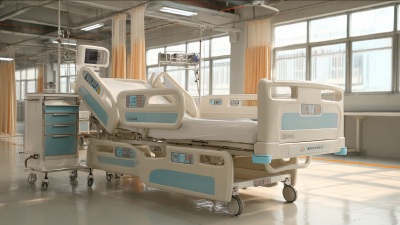
Unmatched Quality of Hospital Beds from Chinas Leading Factory Trusted Worldwide
-
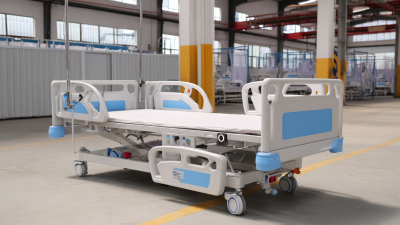
Common Challenges Faced by Global Buyers in Sourcing Medical Beds: An In-Depth Analysis
-
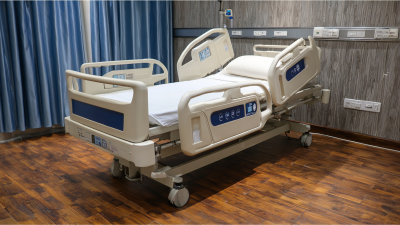
7 Compelling Reasons to Choose a Patient Bed With Mattress for Optimal Comfort
Blog Tags:


